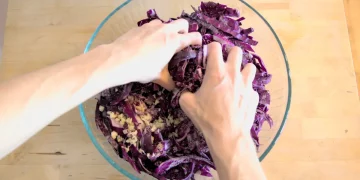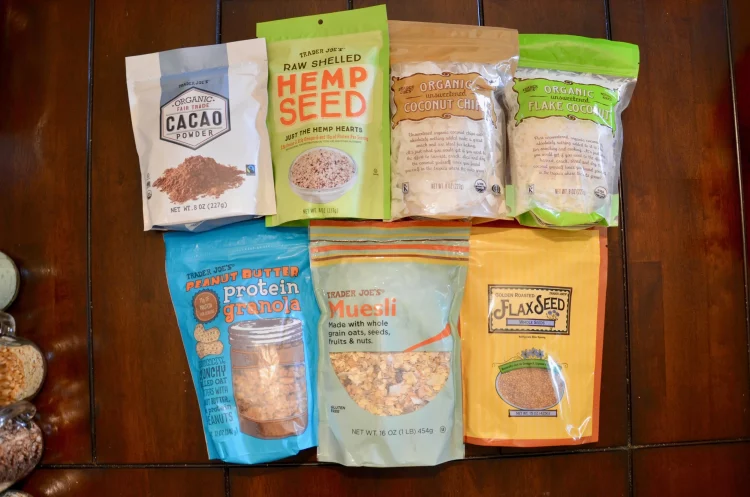Walk into any health food store or scroll through wellness Instagram, and you’ll be bombarded by the promise of “superfoods.” From exotic berries to ancient grains and pricey powders, these products are marketed as nutritional panaceas, capable of curing everything from inflammation to aging with a single spoonful. The term itself is seductive—it implies a magical, superior category of food that transcends the mundane nourishment of an apple or a carrot. But behind the glossy packaging and influencer endorsements lies a crucial truth: “superfood” is not a scientific term. It is a marketing creation, designed to sell products by tapping into our deepest desires for health and longevity. This hype creates a distorted view of nutrition, suggesting that health can be purchased in a bag and that the answer to well-being lies in a single, expensive ingredient rather than in the consistent, humble practice of eating a variety of whole foods. Learning to separate evidence-based nutrition from clever marketing is not just about saving money; it’s about reclaiming a sane, sustainable, and scientifically-grounded approach to eating that doesn’t rely on magic bullets or foster food fear.
The superfood phenomenon is a case study in how marketing eclipses science. It takes a food that may have legitimate nutritional benefits—like antioxidants or fiber—and exaggerates those benefits to an extreme, often extrapolating from preliminary cell studies or animal research to make grand claims about human health. This process ignores the fundamental principle of nutrition: synergy. The health benefits of a diet come from the complex interplay of countless nutrients across a wide variety of foods, not from megadoses of a single compound isolated in a lab or a smoothie. No single food, no matter how “super,” can compensate for an overall poor dietary pattern. Furthermore, the focus on exotic, often imported superfoods can undermine the value of locally grown, affordable, and equally nutritious staples like blueberries, kale, oats, and beans—foods that might be called “super” if they weren’t so common. This critical thinking isn’t about cynicism; it’s about empowerment. It’s about developing the skills to navigate the nutritional landscape without being swayed by every new trend, ensuring that your food choices are based on evidence, not exaggeration.
The Red Flags: How to Spot Nutritional Hype
Before you invest in the latest trendy seed, train yourself to recognize the warning signs of overhyped marketing.
- Extreme, Miracle Cure Claims: Be deeply skeptical of any food or supplement promoted as a “cure,” “miracle,” or “breakthrough.” Nutrition science is a field of modest, cumulative benefits, not magic bullets. If a product claims to melt fat, reverse chronic disease, or detoxify your body overnight, it’s almost certainly hype. The human body is far more complex.
- Promises of Quick Fixes: Good health is built through long-term habits, not short-term products. Marketing that promises rapid, dramatic results is preying on impatience and frustration, not offering genuine solutions.
- Reliance on Anecdotes and Single Studies: A compelling personal testimonial or a single, small-scale study is not proof. Robust scientific consensus is built through repeated, large-scale, peer-reviewed research. If a claim is based on one study or a handful of success stories, it’s not yet a fact.
- The “Secret” or “Ancient” Narrative: Marketing that suggests a product contains a “secret” ingredient known to some remote tribe is designed to make it seem mystical and exclusive. While there’s value in diverse food traditions, it doesn’t automatically make a food scientifically superior.

The Green Flags: Hallmarks of Evidence-Based Nutrition
In contrast to hype, genuine, credible nutrition advice has a different tone and substance.
- Modest, Specific Claims: Real nutrition science makes claims like, “Foods rich in omega-3 fatty acids, as part of a balanced diet, may contribute to reduced inflammation.” Notice the modesty (“may contribute”) and the context (“as part of a balanced diet”).
- Source from Credible Experts: Look for information from Registered Dietitians (RDs or RDNs), major medical institutions (like Harvard T.H. Chan School of Public Health), and governmental health bodies. These professionals are trained to translate complex science into practical advice without a financial stake in selling you a specific product.
- Emphasis on Overall Dietary Patterns: Evidence-based nutrition focuses on the big picture: the Mediterranean diet, a plant-based diet, or simply eating more fruits, vegetables, whole grains, and legumes. It’s about the dietary pattern, not the individual “hero” food.
- Sustainability and Accessibility: Sound advice promotes foods and patterns that are sustainable for both the planet and your wallet. It doesn’t insist you need to source expensive powders from the other side of the world to be healthy.
Case Study: The Rise and Rationale of Coconut Oil
Coconut oil is a perfect example of a food that rode a wave of hype before crashing into scientific reality.
- The Hype: Marketed as a heart-healthy, metabolism-boosting, antimicrobial miracle fat. Claims were based on its unique type of saturated fat (MCTs) and some small, short-term studies.
- The Science: Larger, more robust reviews by organizations like the American Heart Association reaffirmed that coconut oil raises LDL (“bad”) cholesterol—a key risk factor for heart disease—to the same degree as other saturated fats like butter and beef fat. While some specific MCTs in coconut oil may have modest metabolic effects, the overall impact on heart health is negative compared to unsaturated fats like olive oil.
- The Takeaway: Coconut oil isn’t poison, and it can be used for its flavor and cooking properties. But the superfood claims of it being a health food were dramatically overblown and not supported by the total weight of evidence. It’s a cautionary tale about latching onto a single nutrient (MCTs) and ignoring the overall effect of the food.
Join the Critical Conversation
The landscape of nutrition trends is always changing. Today’s hot superfood is tomorrow’s forgotten fad.
We want to build a community of critical thinkers. What’s a food or supplement trend you’re currently curious or skeptical about?
Is it celery juice? Seed cycling? A new “fat-burning” supplement?
Post your question in the comments below. Let’s crowdsource our skepticism and research. Together, we can discuss it rationally: What does the current evidence actually say? What are the red flags? What are the potential benefits, if any?
Let’s move from being consumers of hype to becoming students of science.

































